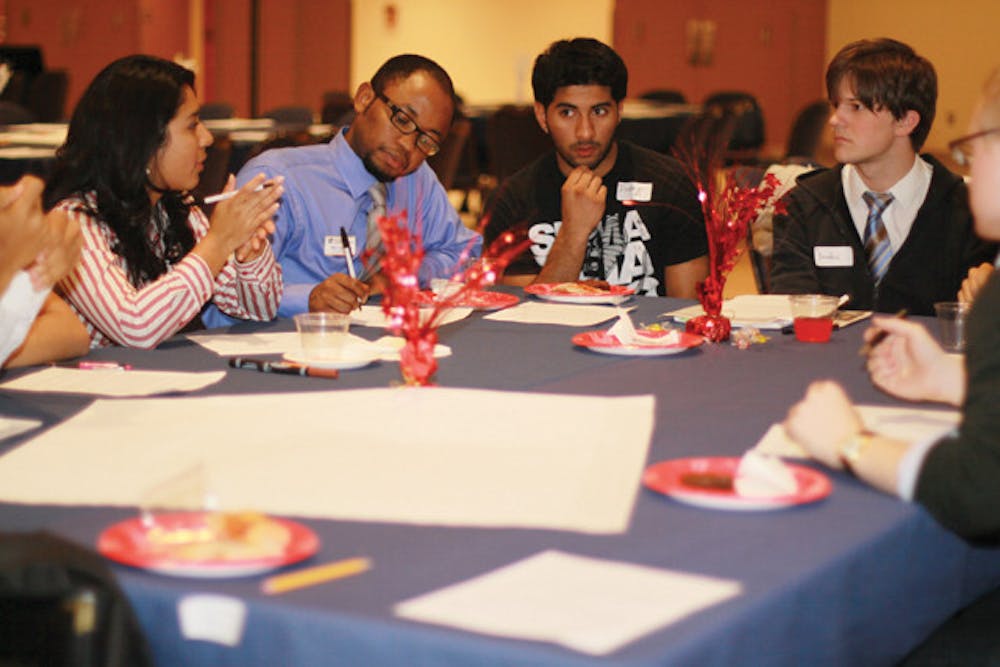To sum up the challenges in getting a college education, Joe Johnson took the stage of the Reitz Union Rion Ballroom on Thursday night and busted into rhyme.
"First generation. Low income. At risk," said Johnson, UF's assistant director of the Office of Academic Support.
"The reality of this is some people get pissed at the fact you're here, and your brilliance gets dismissed."
In spoken word style, Johnson encouraged about 80 people at the Educational Access Summit to brainstorm solutions and ideas to fix Florida's education system.
Students did more than just take notes.
They broke into groups and came up with recommendations to fix the education system on the spot.
Groups presented their ideas on stage, suggesting teachers try to relate better to low-income students, create more high school mentor programs and improve college advising.
The event was hosted by Gators' College Access Network and sponsored by various student organizations and departments, including Student Government, Gators for Educational Equity and the Office of Academic Support.
Andrew Hecht, president of Gators' College Access Network, said the best recommendations made Thursday will be sent to various UF academic departments.
"Will we solve all of our problems here?" Hecht said. "Probably not, but the conversation has to start somewhere."
Some people suggested lobbying against the FCAT and fixing problems with school funding.
Some thought the event was a step in the right direction.
"I feel like these are the problems that we need to start going against," said Dino Medic, 18, a biology freshman who came from a low-income family.
"Everyone here is passionate about changing things."
As the first in his family to attend college, Medic said the summit was worthwhile for him.
"Being aware and knowledgeable is what being here was all about," Medic said.
Students discuss how the university can use its resources to reach out to first-generation or low-income students at the Educational Access Summit in the Reitz Union Rion Ballroom on Thursday.






